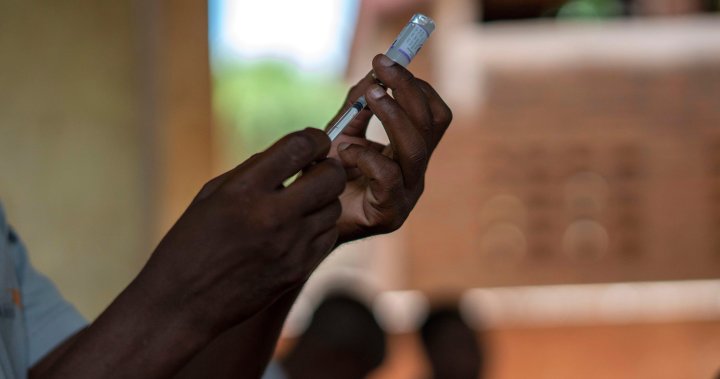The World Health Organization announced the approval of a second malaria vaccine on Monday, which could provide countries with a more affordable and accessible option compared to the first vaccine. The decision to authorize the new vaccine was made based on the advice of two expert groups, who recommended its use in children at risk of malaria.
The Director-General of the WHO, Tedros Adhanom Ghebreyesus, expressed his excitement about the development, stating that as a malaria researcher, he used to dream of the day when a safe and effective vaccine against malaria would be available. Oxford University, in collaboration with the Serum Institute of India, developed the new vaccine, which consists of three doses. Research shows that it is more than 75% effective and provides protection for at least one year with a booster.
According to Tedros, the cost of the vaccine is estimated to be around $2 to $4 per shot, and it could potentially be available in some countries next year if funders agree to purchase it. Earlier this year, regulatory authorities in Ghana and Burkina Faso approved the vaccine.
Despite the approval of the new vaccine, experts emphasize that it should not replace other preventive measures such as bed nets and insecticide spraying. John Johnson from Doctors Without Borders stated that while the new vaccine is a valuable tool, it is not the solution to eradicating malaria.
In 2021, the WHO endorsed the first malaria vaccine, known as Mosquirix, which was described as a historic effort to combat the disease. However, Mosquirix is only around 30% effective, requires four doses, and protection diminishes over time. The data available does not provide a clear comparison of the effectiveness between the GSK and Oxford-developed vaccines.
The Bill & Melinda Gates Foundation, a major supporter of the GSK vaccine, withdrew its financial backing last year due to concerns about its effectiveness. The foundation suggested that the funds would be better utilized elsewhere. The GSK vaccine is expected to be available in limited quantities in only a few countries in the coming years, as it has a production capacity of approximately 15 million doses per year. On the other hand, the Serum Institute projects a capacity of up to 200 million doses per year for the Oxford vaccine.
Alister Craig, an emeritus professor at the Liverpool School of Tropical Medicine, recommends that countries currently planning to use the GSK vaccine should consider switching to the Oxford vaccine.
If the new vaccine is widely implemented across Africa, it could significantly reduce severe illness and deaths caused by malaria within a few years. However, it’s important to note that neither of the malaria vaccines prevents the transmission of the disease, so additional efforts are needed to curb epidemics. Challenges such as drug resistance and the spread of invasive mosquito species further complicate malaria control.
In addition to the malaria vaccine, the WHO also authorized the use of a dengue vaccine made by Takeda, which was previously approved by the European Union drug regulator. The expert groups recommended the use of the Takeda dengue vaccine in children aged 6 to 16 in countries with a high prevalence of the disease. Previous studies have shown that the vaccine is about 84% effective in preventing hospitalizations due to dengue and about 61% effective in preventing symptoms four years after immunization.
The approval of the second malaria vaccine and the dengue vaccine represents significant progress in the fight against these diseases. However, experts caution that the vaccines alone will not be enough to eradicate the diseases, as there are other factors to consider such as drug resistance and the presence of invasive mosquito species.
In conclusion, the World Health Organization’s announcement of a second malaria vaccine and the approval of a dengue vaccine by Takeda mark important milestones in global healthcare. These vaccines offer hope in combatting two devastating diseases, but it’s crucial to remember that they are part of a comprehensive strategy that includes various preventive measures and ongoing research to address evolving challenges.
Denial of responsibility! Vigour Times is an automatic aggregator of Global media. In each content, the hyperlink to the primary source is specified. All trademarks belong to their rightful owners, and all materials to their authors. For any complaint, please reach us at – [email protected]. We will take necessary action within 24 hours.


